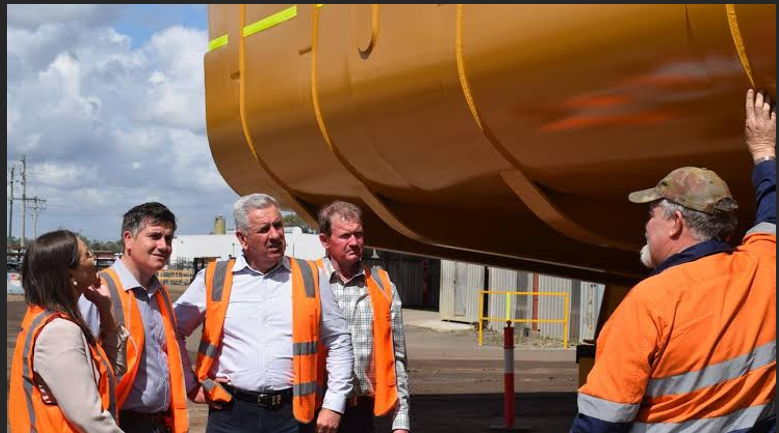Bravus Mining and Resources declared an expansion of the Carmichael coal mine for $50 million. It proposes the creation of 600 construction jobs across Central Queensland, increasing production by one-third over the current 10 million tonnes per annum. The investment comes after a royalty-deferment arrangement was agreed upon with the Queensland government.
Since 2021, Bravus already paid more than $200 million in royalties. The new agreement provides that deferred royalties will have to be repaid with interest. The expansion promises to offer much-needed stimulus to the local economy, especially in times of uncertain coal markets.

Expansion in job
What Will Be Built?
This investment will see multiple major infrastructure projects brought to fruition. A new workers’ village will be built to accommodate the growth in the workforce. A new dam will provide the water supply enhancement, while a rail maintenance hub will ensure efficiency in transport. Mine-site improvements and many other aspects of the $500 million package are apart from this.
Regional businesses expect major flow-on effects, with suppliers in Townsville and Rockhampton looking to be contracted in manufacturing, fabrication, and maintenance. The expansion thus suggests long-term demand for skilled trades and regional services.
How Will Budget Impact Be Managed?
Queensland Treasurer David Janetzki stated that the state budget will not face any material impact. Of course, under the agreement, deferred royalties will be paid back with interest. But importantly, also still in force are the royalty tiers introduced in 2022, which were very controversial.
The agreement thus follows very contentious litigation. Litigation occurred between Bravus and the Labour government due to the 2017 royalty arrangement never being implemented. That impasse was resolved with this settlement, providing certainty for investments.
View this post on Instagram
Government Sends “Open for Business” Signal
Premier David Crisafulli Jnr called the agreement a signal that investor confidence is again returning, finally putting the matter to rest. He proclaimed, therefore, that Queensland is “open for business”. According to Natural Resources Minister Last, coal mine demand globally remains very strong, especially so for India and Southeast Asia.
More than 400 coal-fired power stations are under construction around the world today. The Galilee Basin reserves can supply and maintain local jobs. This project shows that resources investment continues to support the economy of Queensland even when market prices are under pressure.
Why Is the Mine Controversial?
The Carmichael coal mine always drew opposition from environmentalists and traditional owners. Opponents argue that mine threatens the water sources and adds to global emissions. And, interference with the Great Barrier Reef holds central concerns in this debate.
Financial questions are also raised in the project. Bravus has suffered losses that exceed $800 million in a two-year span. Some critics warn about royalty deferrals that put taxpayers at risk. Broader market conditions, meanwhile, continue to be tough, with BHP recently hinting at the possible closure of Queensland mines amid low coal prices.
Supporters, in turn, hold the view that the coal mine would provide energy for the growing Asian economies and maintain employment in the region. They argue that with responsible management and new technologies, environmental risks can be minimised.
Also Read: Trump Family Denies Involvement in New ‘Official’ Crypto Wallet
Global Energy Demand and Regional Development
Coal mines continues to be a prime mover in global energy markets. India registered a 4 per cent increase in demand for coal last year. That gives Queensland’s high-quality coal the opportunity to fulfill such demand with efficiency.
Local contractors like SMW Group and Wulguru Group will provide manufacturing and maintenance services. The expansion is expected to support apprenticeships, skilled jobs, and small businesses across Central Queensland. These benefits strengthen regional communities already reliant on resource investment.
Industry analysts say the deal reflects the balance between economic development and environmental responsibility. While global energy transition policies advance, coal demand persists in fast-growing markets. The Carmichael expansion highlights how Queensland navigates these competing pressures.

